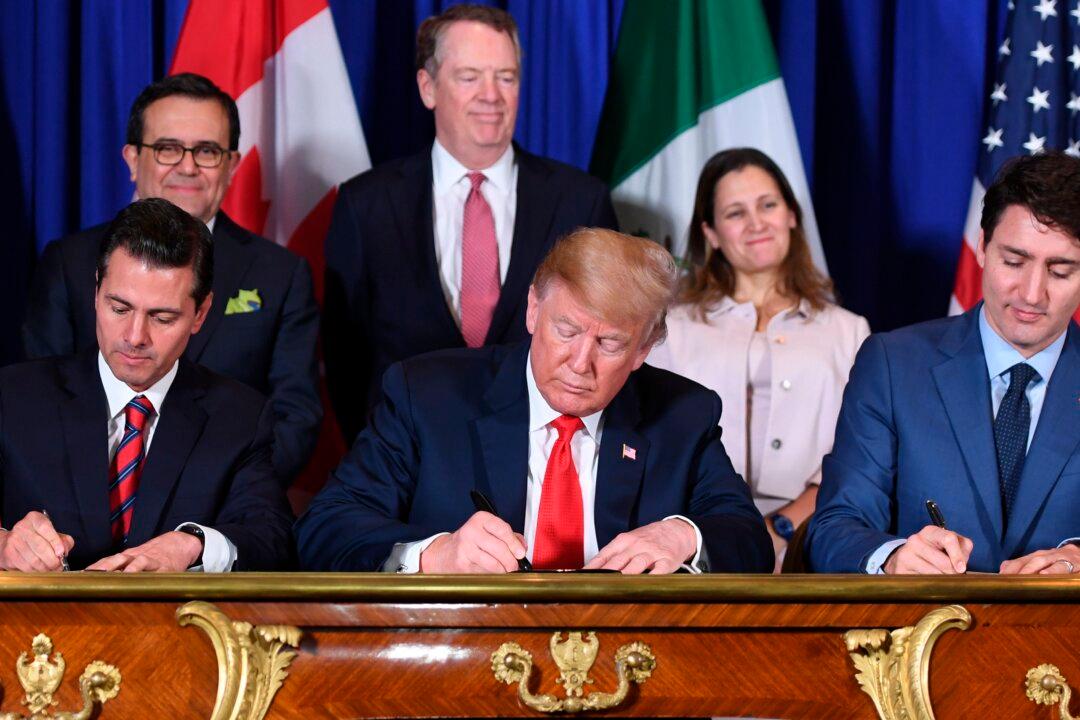WASHINGTON—While Democrats are skeptical about the new trade agreement with Mexico and Canada, President Donald Trump is confident that the U.S. lawmakers will vote for it soon.
Otherwise, there would be no free trade deal, he warned.


WASHINGTON—While Democrats are skeptical about the new trade agreement with Mexico and Canada, President Donald Trump is confident that the U.S. lawmakers will vote for it soon.
Otherwise, there would be no free trade deal, he warned.